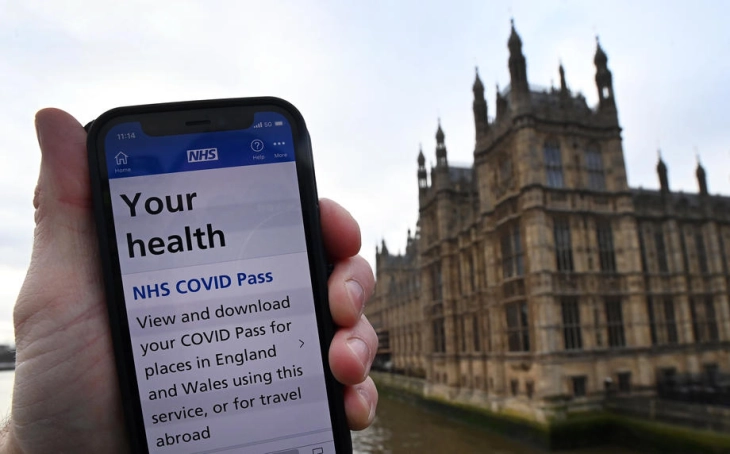Record two million Britons have long Covid
- Post By Magdalena Reed
- 15:43, 1 June, 2022

London, 1 June 2022 (PA Media/dpa/MIA) — A record two million people in the UK are estimated to be suffering from long Covid, according to the Office for National Statistics (ONS).
Around 3.1% of the British population are suffering symptoms persisting for more than four weeks after catching SARS-CoV-2, according to new ONS estimates.
Some 376,000 people who first caught the coronavirus around the start of the pandemic have reported symptoms lasting at least two years, with 826,000 people experiencing symptoms for at least a year.
Around 1.4 million have had lingering Covid-19 symptoms at least three months after their initial infection.
The most common symptoms include fatigue, shortness of breath, cough and muscle ache.
One in five (20%) of those who have long Covid reported that their ability to undertake their day-to-day activities had been limited a lot by ongoing symptoms.
The ONS said that the rates of long Covid were highest among women, those aged 35 to 69 years, people living in more deprived areas, those working in social care, teaching and education or health care, and those with other health conditions or disabilities.
The figures are based on self-reported long Covid from a representative sample of people in private households in the four weeks up to May 1, 2022.
Estimates for long Covid in the UK have risen sharply in recent months, climbing from 1.3 million at the start of the year to reach 1.5 million by the end of January and 1.8 million in early April.
The increase is likely to reflect the impact of the Omicron variant of the virus, which saw record levels of infection across the country in the spring.
Of the two million people with self-reported long Covid, 619,000 — nearly a third — first had the virus, or suspected they had it, during the Omicron period.
The first Omicron wave began in the UK in December 2021 and was followed in March 2022 by another surge of infections driven by the Omicron BA.2 variant.
In contrast, 593,000 people with self-reported long Covid said they first had SARS-CoV-2 in the early period of the pandemic before Alpha became the main variant in late 2020.
Experts have called for more to be done to educate the public about the risks of long Covid.
Professor Amitava Banerjee, from the Institute of Health Informatics at University College London, told the PA news agency: "We know that the only way to prevent it is to prevent getting infected.
"We've put all of our eggs in the vaccination basket, and the latest analysis, including by ONS, show that although vaccinated people are much less likely to get long Covid than those without vaccination, they still get can get infected, and they still can get long Covid," he said.
Banerjee called the idea that high levels of Covid in the population are no longer a concern "misguided."
"I think we should be doing more to educate people... just as we've said since the beginning, there's a risk of hospitalization or at worst death in people who are vulnerable, and that's why you should get vaccinated.
"But we should still be saying today in June 2022 that getting Covid infection is something that's best avoided because there's a risk."
He added that studies suggest that 5-10% of people infected get persistent symptoms.
"And that can mean you feeling unwell, that can mean that you're off work, at population level that has a strain on health systems that has an impact on economies," Banerjee said, adding an appeal that people continue to "avoid infection if you can."







